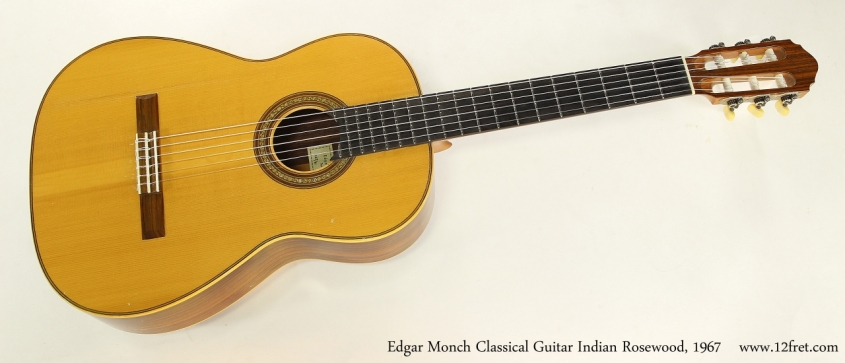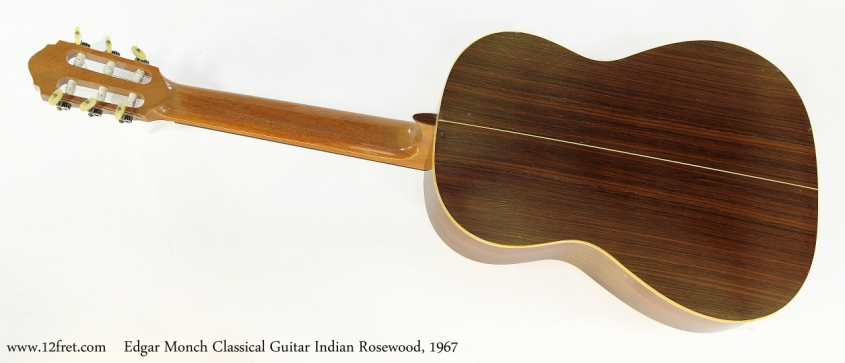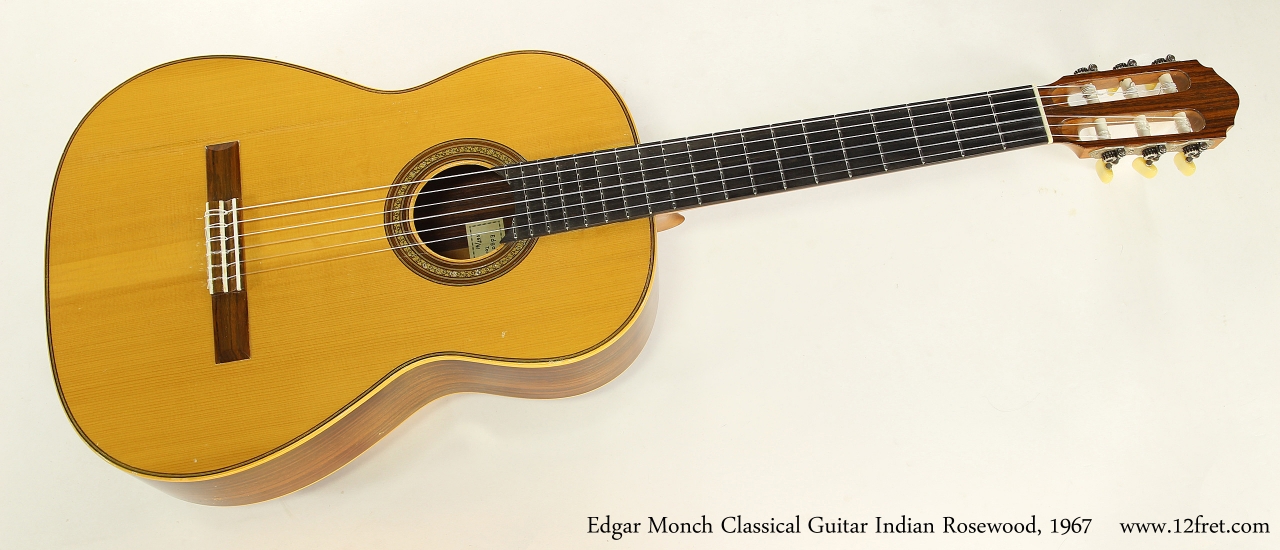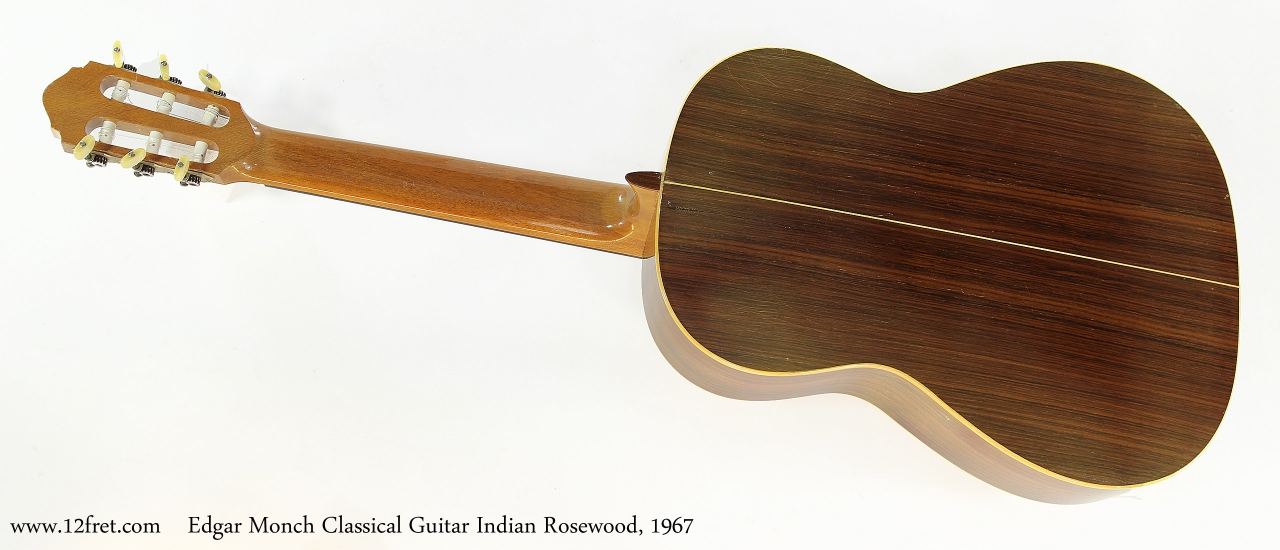Brand: Edgar Monch
Instrument Categories: Classical and Flamenco, Guitars, SOLD
We regularly see Edgar Monch classical guitars, as Monch spent some time working in Toronto and was influential for many Canadian builders. In particular, Jean Larrivee learned quite a bit from Edgar Monch and the classical influence is visible in many Larrivee designs.
This Edgar Monch Classical Guitar was built at his Toronto shop during 1967, numbered as 1967/41. It features a Spruce top paired with Indian Rosewood for the back, sides and headplate; the neck and body blocks are Mahogany and the fingerboard is Ebony.
This Edgar Monch Classical guitar is over half a century old and has been played as intended. As expected, there is lots of natural lacquer checking. Over the years it has developed a few cracks and these have all been repaired and most cleated and finished over. As well, the neck was reset. Looking inside the guitar, it appears that it uses the traditional Spanish ‘Slipper Foot’ construction where the sides slot into the heel, but in fact Monch used a dovetail. Following the neck reset, the fingerboard falls away at the body, but the guitar has been recently serviced and is now in fully playable condition.
A period hard shell case, likely original, is included.
Here is what Grant MacNeill has to say about this 1967 Monch classical:
Here at The Twelfth Fret we are fortunate to have seen and worked on a number of fine Edgar Mönch guitars over the past decades. This guitar is in reasonably good condition and compares very favourably to the last 6 or 8 that have passed through my hands. It is nicely balanced and has a full tone typical of spruce top “German school” guitars with a clear, tight bass response and round, warm trebles, with surprisingly good volume for a guitar that has sat unplayed for decades.
This guitar was built with Edgar’s signature “fake slipper foot” neck joint which concealed a dovetail joint making a neck reset possible in order to offer enough scope at the saddle for “modern” action expectations. This reset was done elsewhere using a “dated” approach to resetting necks where the fretboard was sawn through and reglued after the dovetail was carved and reset; a technique we have not used in our workshops since the late 1970s. That said, the reset angle is much improved allowing for much lower action; currently setup at the low end of the “normal classical action range” at 7/64” treble and 8/64” bass. Many players would want higher action which we can easily do if needs be. The exposed saddle portion measures to 5/64 inch which would also permit additional lowering if needed in future.
The master luthiers in our workshop dressed the frets to correct for a minor fretboard hump at the body and it now plays perfectly throughout the entire range. Other than the neck reset, decades ago there were two top cracks and one back crack professionally repaired, far enough in the past for the touch-up lacquer to have lacquer-checked. My “best guess” would be that this work was done in the 70s or 80s. Clearly these cracks are stable and should remain so for decades to come.
The Hauser tuners are original and the same models as I’ve seen fitted to all other Toronto workshop Mönch guitars.
Speaking to the tone, condition and playability: I would put this Toronto-Workshop Edgar Mönch guitar on an equal footing with the best of the Mönch guitars I’ve seen over the past decade !
We are very fortunate to see another of these rare guitars.
Grant MacNeill
- Model: Classical Guitar
- Year: 1967
- Finish Gloss
- Class: Vintage
- Serial Number: 1967/41
- Country of Origin: Canada
- Condition: Fair
- Date Posted: 27/11/2018
- This instrument has been sold
- Consignment Item
- Required CITES documentation
- Including original Hard case
- Instrument Weight: 3.2lbs 1.42kg
- Scale Length: 25.6in 650mm
- Nut Width: 2in 52mm




